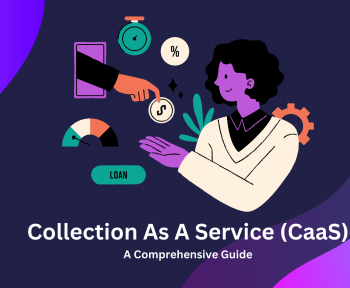The banking industry is going through a rapid transformation, driven by evolving consumer expectations, changing consumer behavior, increased regulatory scrutiny, and the emergence of cutting-edge technologies that open up a wider range of products and services. Amidst this dynamic environment, financial institutions face the ongoing challenge of ensuring compliance, cost management, and maintaining security and trust. Furthermore, governments are actively engaging to drive innovation and expansion of the financial services industry. The convergence of these factors led to the growth of open banking, which allows the secure sharing of financial data between banks and third-party providers via Application Programming Interfaces (APIs). Using this data, third-party providers can tailor products and services that align more effectively with differing customer personas. Customers stand to benefit from the improved and customized offerings. There are multiple ways in which open banking impacts debt collections.
As per a report, the global open banking market size is expected to reach USD 67.8 billion by 2028, exhibiting a CAGR of 21.29% during the period 2022-2028. While its impact on payments, personal finance management, and lending is well-documented, open banking has also exerted a considerable influence on debt collections. Some of the ways in which open banking impacts debt collections, has created new possibilities for lenders, and has improved outcomes for customers are discussed below.
- Enhanced financial insights
Open banking provides debt collection teams and agencies with access to the requisite data points, which can be used to get a comprehensive view of an individual’s financial situation, income, expenses, and existing debts. These insights enable lenders to accurately evaluate a debtor’s financial capacity and tailor repayment / resolution plans that align with their circumstances. It facilitates fairer negotiations, empowering both parties to reach mutually beneficial solutions.
- Streamlined verification and affordability assessments
Debt collectors may be relying on manual processes and often outdated information to verify a debtor’s financial situation and affordability. Open banking impacts debt collections by expediting this process by automating data retrieval directly from the debtor’s bank accounts. With accurate and up-to-date financial information at their disposal, lenders and collection teams can conduct affordability assessments faster and more accurately. This allows for fairer evaluation of repayment plans, thereby, reducing the risk of imposing unrealistic obligations on debtors.
- Personalized and flexible repayment options:
Open banking empowers debt collection teams and their partners to offer personalized repayment options based on the debtor’s financial circumstances. By leveraging the obtained financial insights, collection teams can create tailored repayment plans that consider the debtor’s income, expenses, and other financial obligations. This personalized approach enhances the likelihood of successful debt resolution, promoting a positive experience for both parties. Additionally, open banking enables flexible payment arrangements, such as automated recurring payments, which simplify the repayment process and minimize the chances of missed payments.
- Proactive and timely communication:
Open banking impacts debt collections by allowing debt collectors to proactively monitor a debtor’s financial behavior, including incoming funds and spending patterns. Armed with this information, collections teams can initiate timely communication, providing reminders, alerts, and support when necessary. For instance, if a debtor receives an unexpected windfall or faces financial hardships, open banking enables debt collectors to adjust the repayment plan promptly, preventing a potential default and fostering a cooperative relationship with the debtor.
- Compliance and data security:
Open banking operates under robust security protocols, ensuring the safe and controlled transfer of financial data. Debt collection teams must adhere to strict data protection regulations to maintain the privacy and security of customer information. By utilizing secure APIs and following regulatory guidelines, open banking facilitates compliance while preserving the trust of debtors. Transparency in data usage and explicit consent mechanisms provide debtors with confidence in sharing their financial data.
Benefits to customers and borrowers
Consumers reap significant benefits from the personalized product and service offerings facilitated by Open Banking. This advantage extends beyond financial products, as providers can utilize open banking data to present targeted recommendations that consider consumers’ financial context, spending patterns, and transactional history. For instance, when searching for a new home, open banking enables tailored suggestions for acquiring credit that align with the individual’s unique financial circumstances.
When it comes to credit applications, Open Banking plays a crucial role. Lenders seek comprehensive information about potential borrowers before extending credit. This includes transaction histories, existing credit card debts, and more. Open banking impacts debt collections by streamlining the process through automated credit checks, simplifying the experience for both customers and lenders.
Account aggregation is another valuable aspect of Open Banking. Through APIs, consumers gain a consolidated overview of their diverse accounts in one convenient location. Instead of logging into multiple applications, they can access all relevant financial data through a single interface, providing a comprehensive snapshot of their financial status.
Source: McKinsey & Company
Conclusion
Open banking is remodeling the debt collection landscape, enabling more efficient and customer-centric practices. Through enhanced financial insights, streamlined verification processes, personalized repayment options, proactive communication, and compliance with data security regulations, debt collection teams can transform their approach and achieve better outcomes for both debtors and creditors. As open banking continues to evolve and gain traction, the debt collection industry has a unique opportunity to leverage this technology for greater efficiency, fairness, and customer satisfaction.
FAQs:
- What are the implications of open banking?
Open banking has far-reaching implications, including enhanced customer experiences through personalized services, increased competition and innovation within the financial sector, collaborative partnerships between banks and fintechs, the need for stringent data security and privacy measures, regulatory compliance requirements, the potential for greater financial inclusion, and the challenges of ensuring data integrity and interoperability.
- What problems does open banking solve?
Open banking addresses various problems within the financial industry, such as limited customer control over financial data, a lack of competition and innovation, fragmented banking experiences, and inefficient access to financial services. By enabling secure data sharing, fostering competition, facilitating collaboration between banks and fintechs, and promoting personalized services, open banking empowers customers, drives innovation, and enhances the overall efficiency and effectiveness of financial transactions and services.
- How do lenders use open banking?
Lenders leverage open banking to gain access to a more comprehensive and accurate view of borrowers’ financial information. By securely connecting to borrowers’ bank accounts and analyzing their transaction history, income, and spending patterns, lenders can make more informed lending decisions and assess creditworthiness with greater precision. Open banking impacts debt collections by enabling automated credit checks, streamlining the application process, and enhancing the overall efficiency and accuracy of lending operations, ultimately benefiting both lenders and borrowers.





